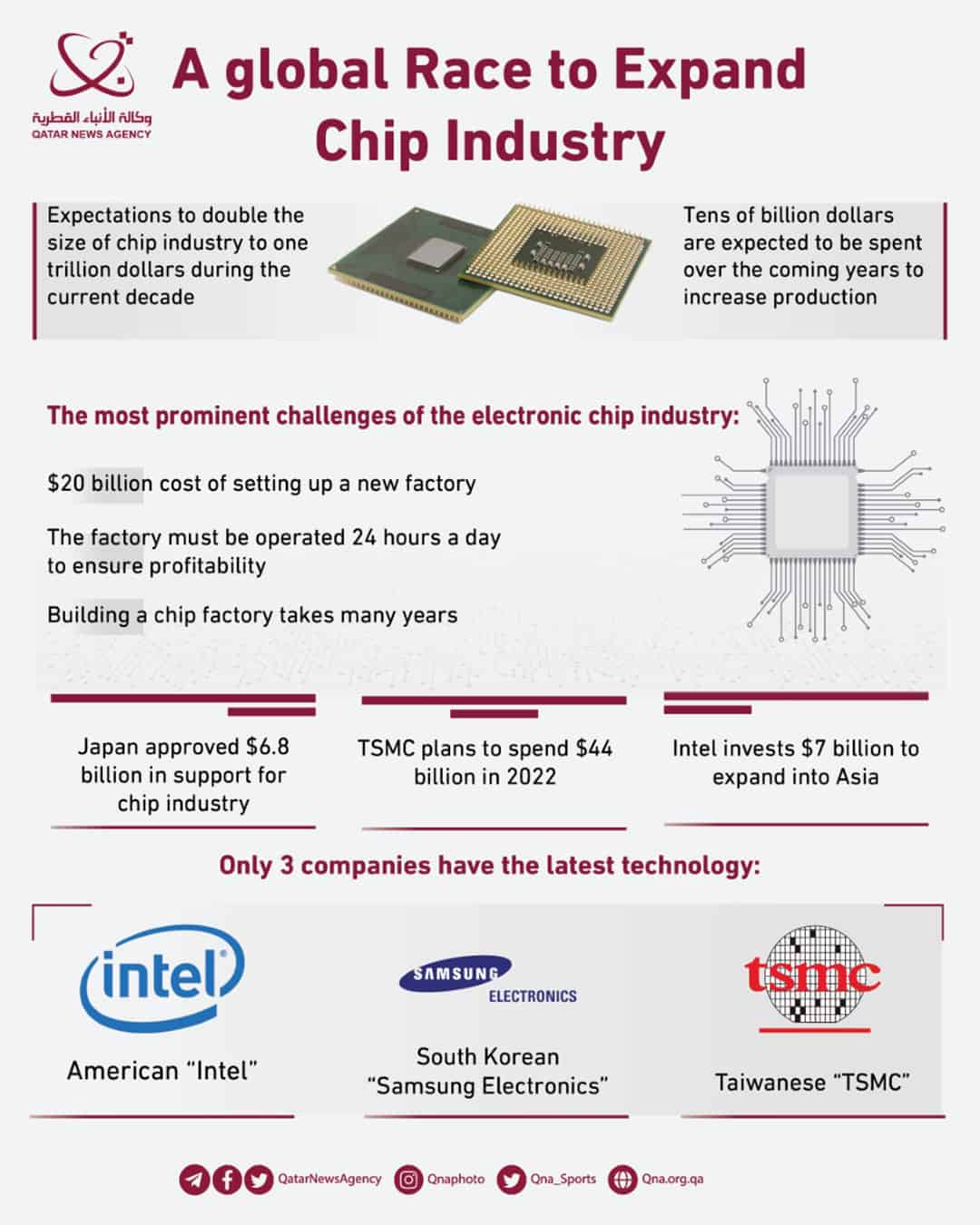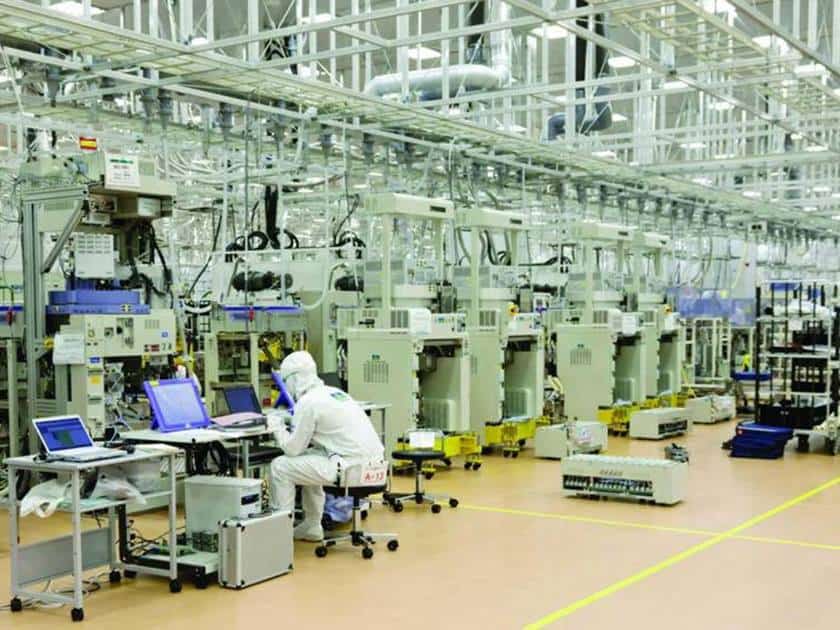Doha, Qatar — The intensification of competition between China and the US in the field of electronic chip manufacturing and the faltering of its supply chains provided space for many countries of the world to localize this industry and an opportunity to diversify its industrial fabric.
Economists were quoted as saying by QNA that Qatar and the countries of the region are in a competitive position to seize this opportunity and attract international companies operating in this field and wishing to bridge the distances between producing and consuming countries to avoid the paralysis that struck the global industry as a result of the scarcity of supplies of this vital product.
Dr. Omar Gharaibeh, a specialist in investment risk management at Jordan’s Al al-Bayt University, said in a statement to QNA that there is an opportunity for emerging economies, especially the Gulf countries, including Qatar, to move towards the electronic chip and semiconductor industry, as they have the financial capacity to handle this industry that requires investments worth tens of billions of dollars.
The Gulf countries are also able to attract highly qualified and scientific expertise and skilled workers, and they possess the primary resources for the manufacture of chips and semiconductors, especially silicon extracted from sand, plastic and petroleum materials, Gharaibeh said.

He also highlighted these countries’ political stability and distinguished geographical location.
He added that Qatar and the countries of the region need to expedite partnerships with the chips and semiconductors manufacturing companies, and increase cooperation with neighboring Arab countries, which will reflect positively on the countries of the region.
These partnerships will lead to an increase in these countries’ exports, enable them to obtain foreign currency, and attract investors and foreign capital, which reduces unemployment rates, he added.
It will also increase the growth rates in the Gulf region, and it will contribute to reducing the deficit rates in public budgets, and accelerate the achievement of sustainable development, he added.

For his part, financial analyst Tamer Hassan said in a statement to QNA that Qatar is working to provide its requirements and needs for semiconductors by encouraging innovation to ensure the implementation of its ambitious digital strategies and to strengthen the technical sector in various fields, which forms an essential part of Qatar’s renaissance and its economic vision 2030.
Hassan said that Qatar has the expertise that qualifies it to make a quantum leap in this field, especially in light of the existence of a well-established communications infrastructure that allows companies and individuals to use and apply modern technology easily.
He pointed to the steps taken by some Arab countries in this field, such as Qatar, Egypt, the Sultanate of Oman, Saudi Arabia, UAE and Morocco, by planning to pump large investments in this sector, the results of which will appear in the coming years.
Hassan added that the IDC website, which predicted that the revenues of the semiconductor sector around the world will reach US$661 billion in 2022, with an annual growth rate of 13.7 percent, after the strong results for 2021, as revenues reached US$582 billion and are expected to reach more than US$800 billion by 2026, registering a compound annual growth rate of approximately 7.6 percent.








